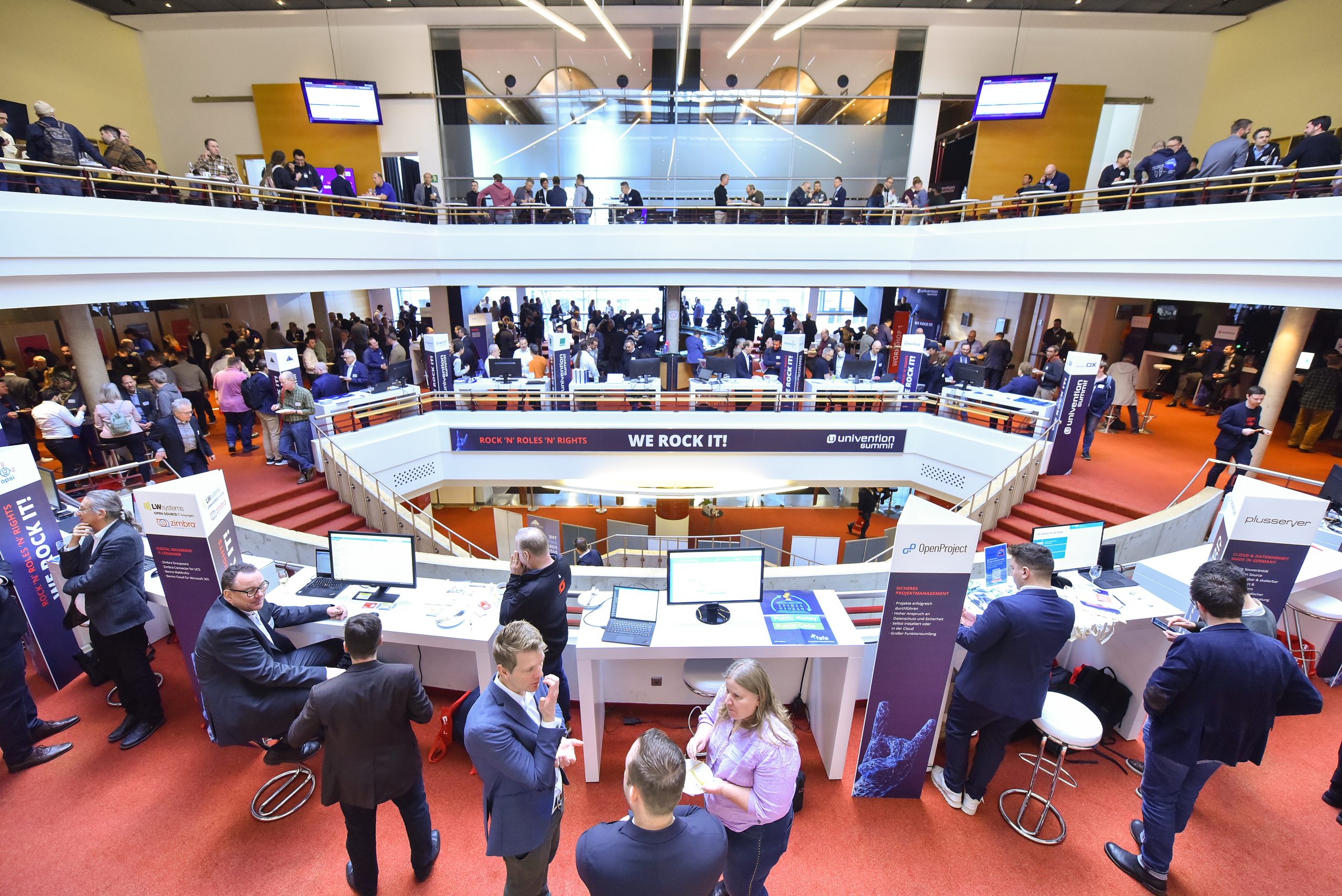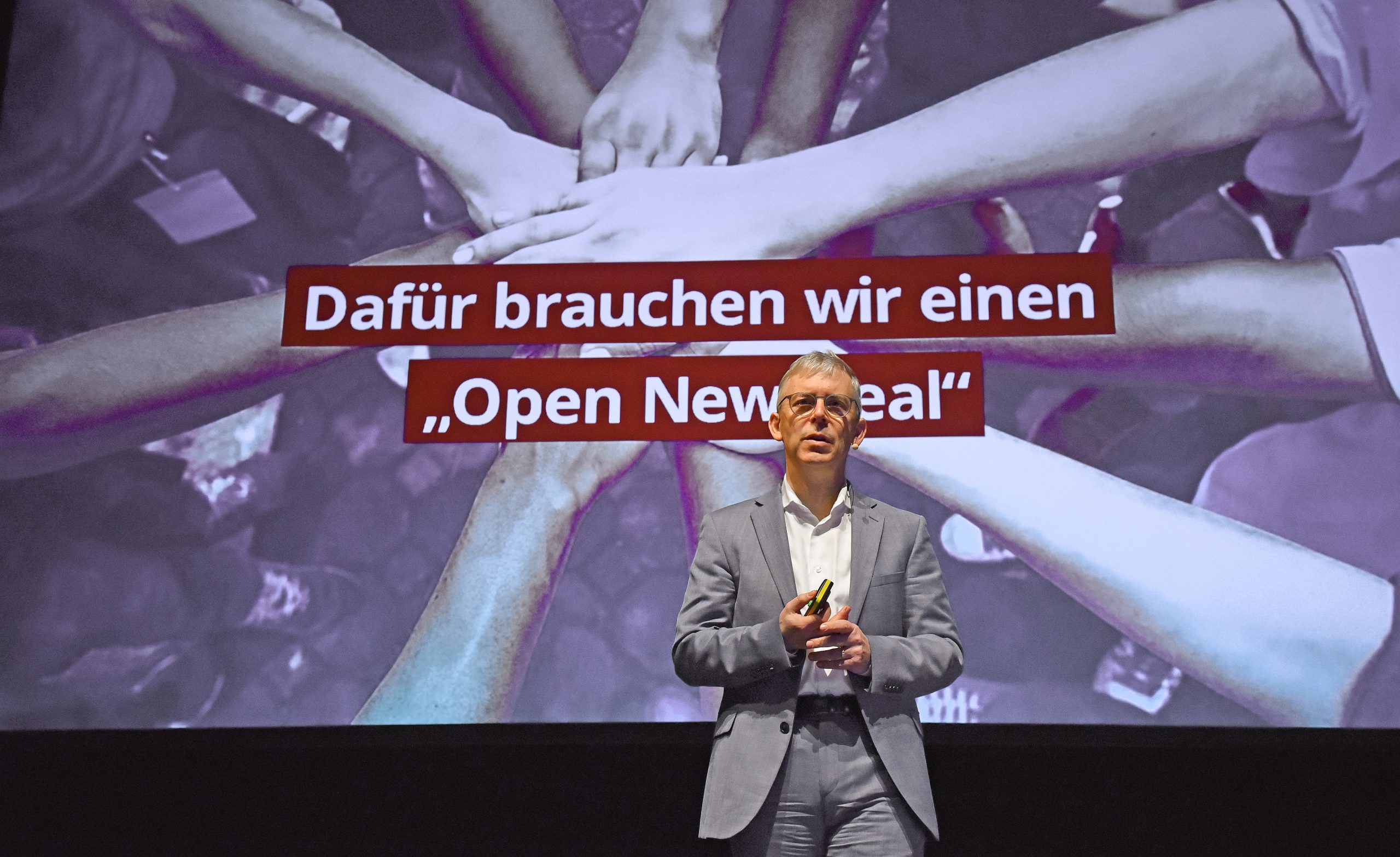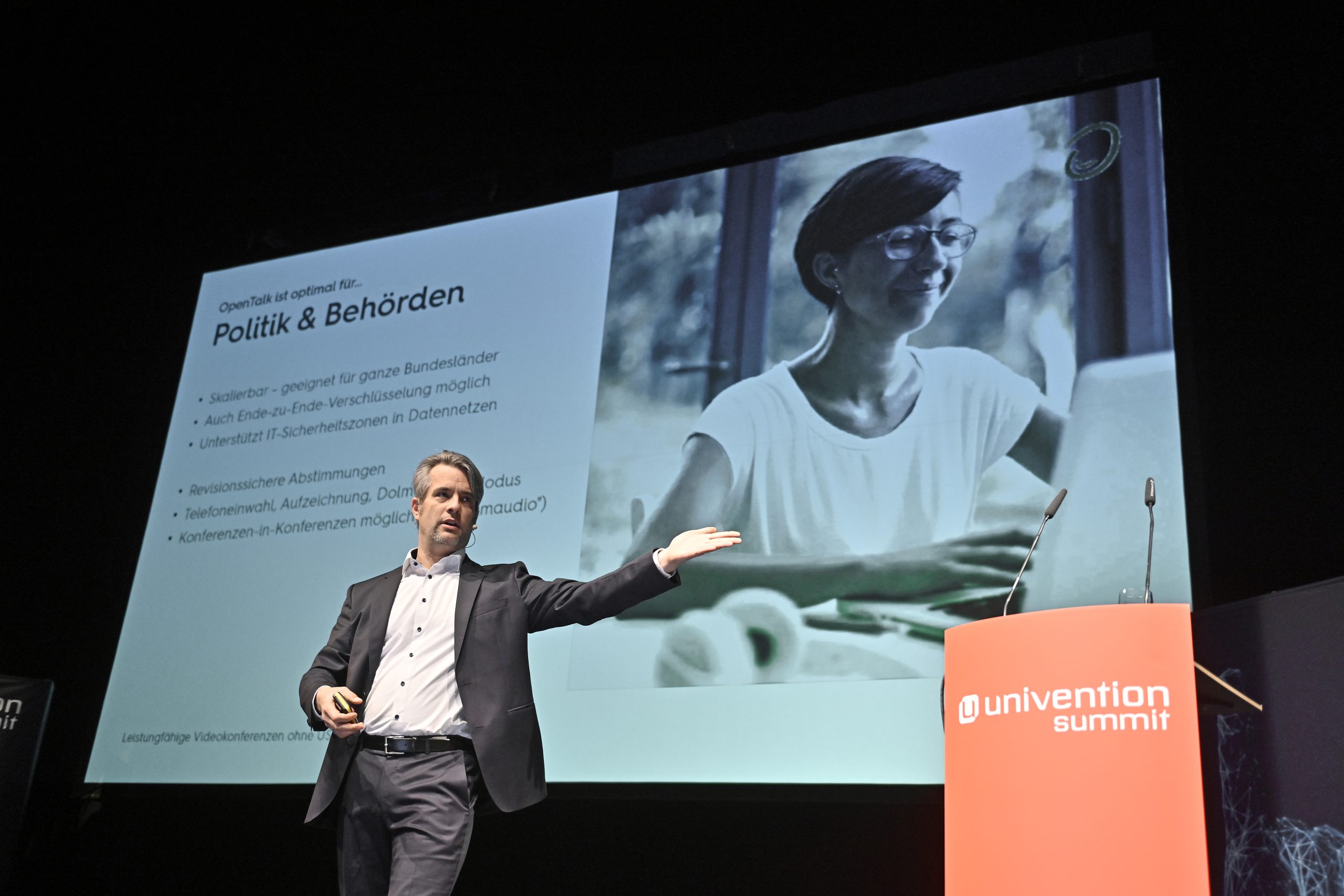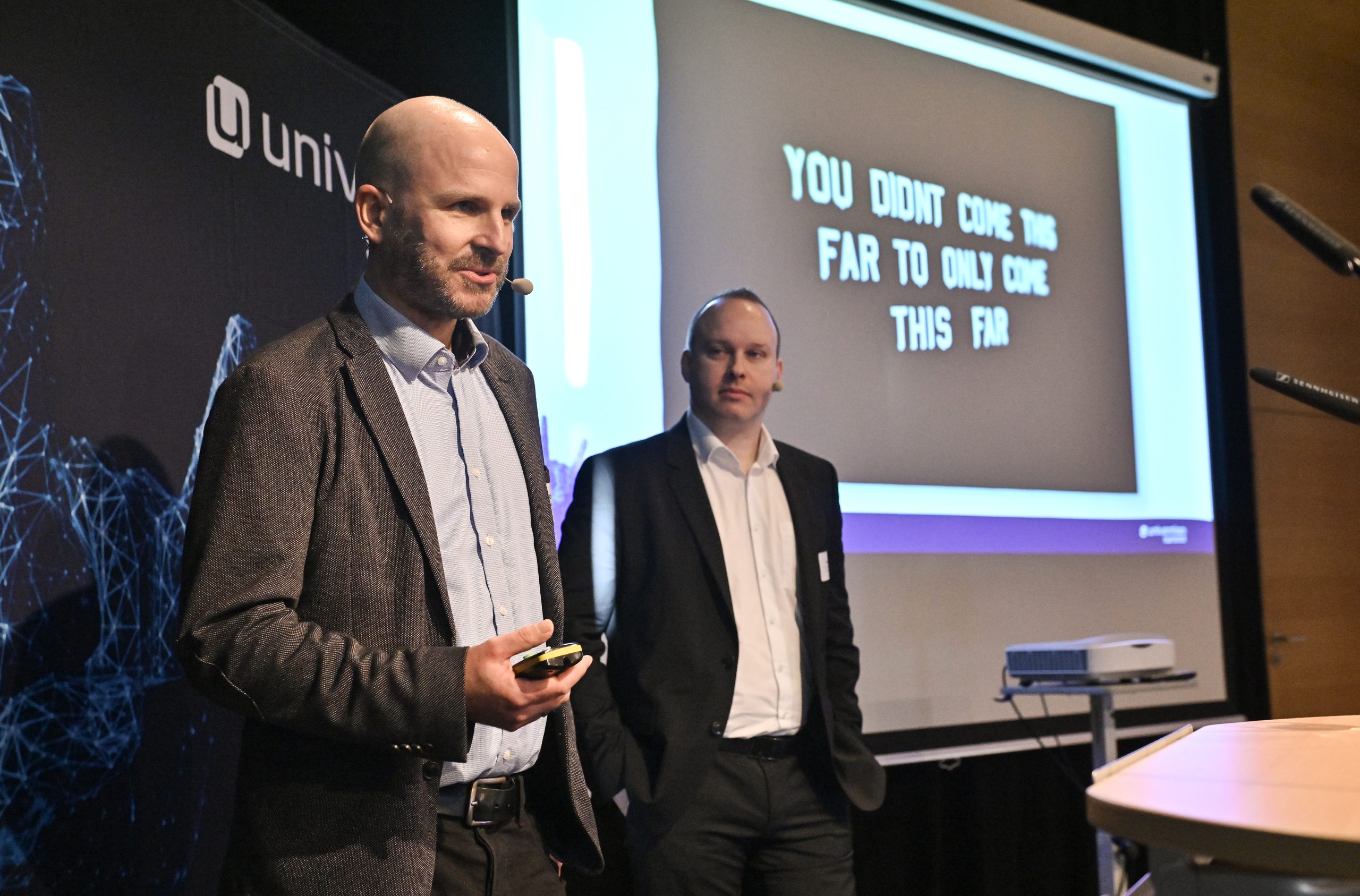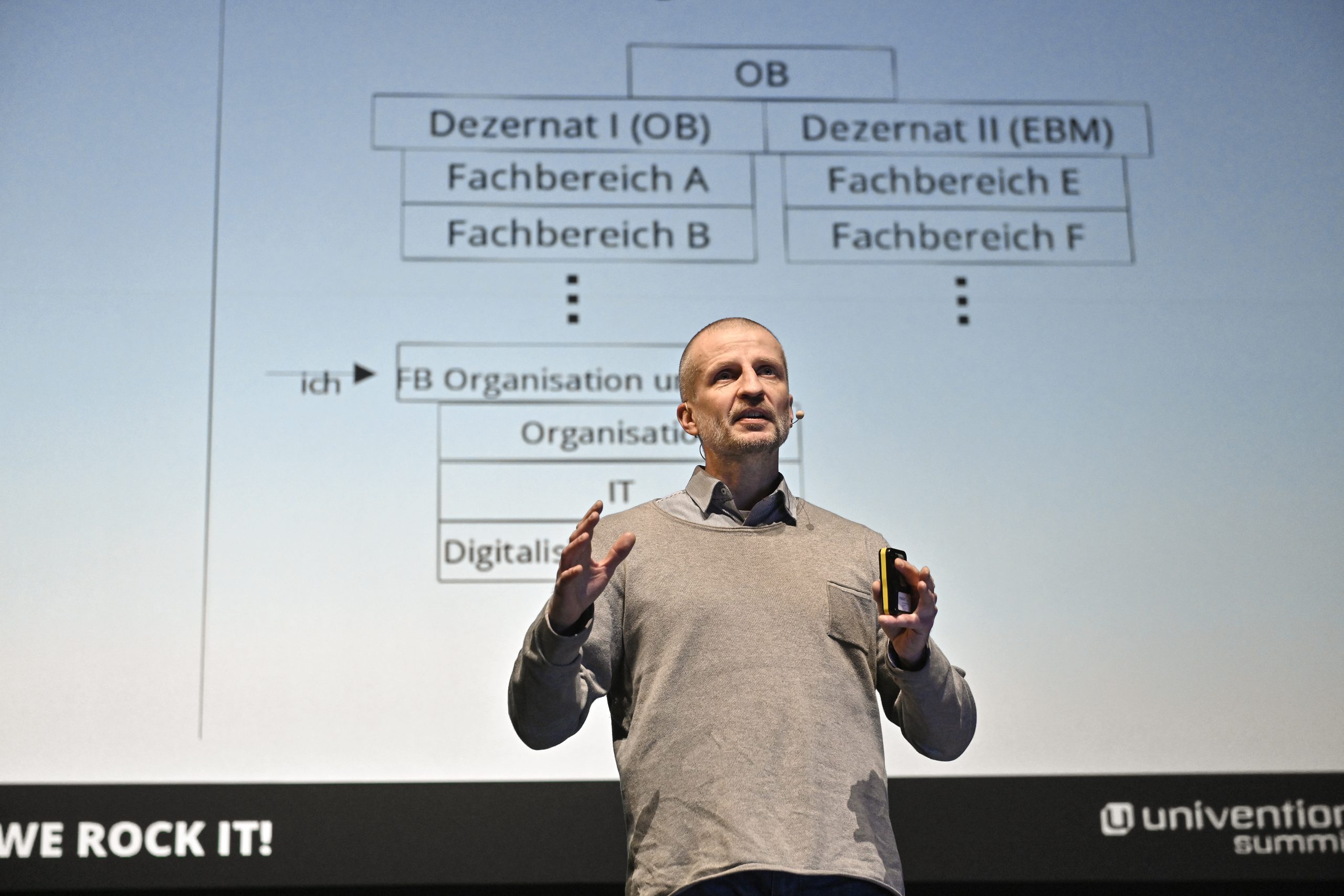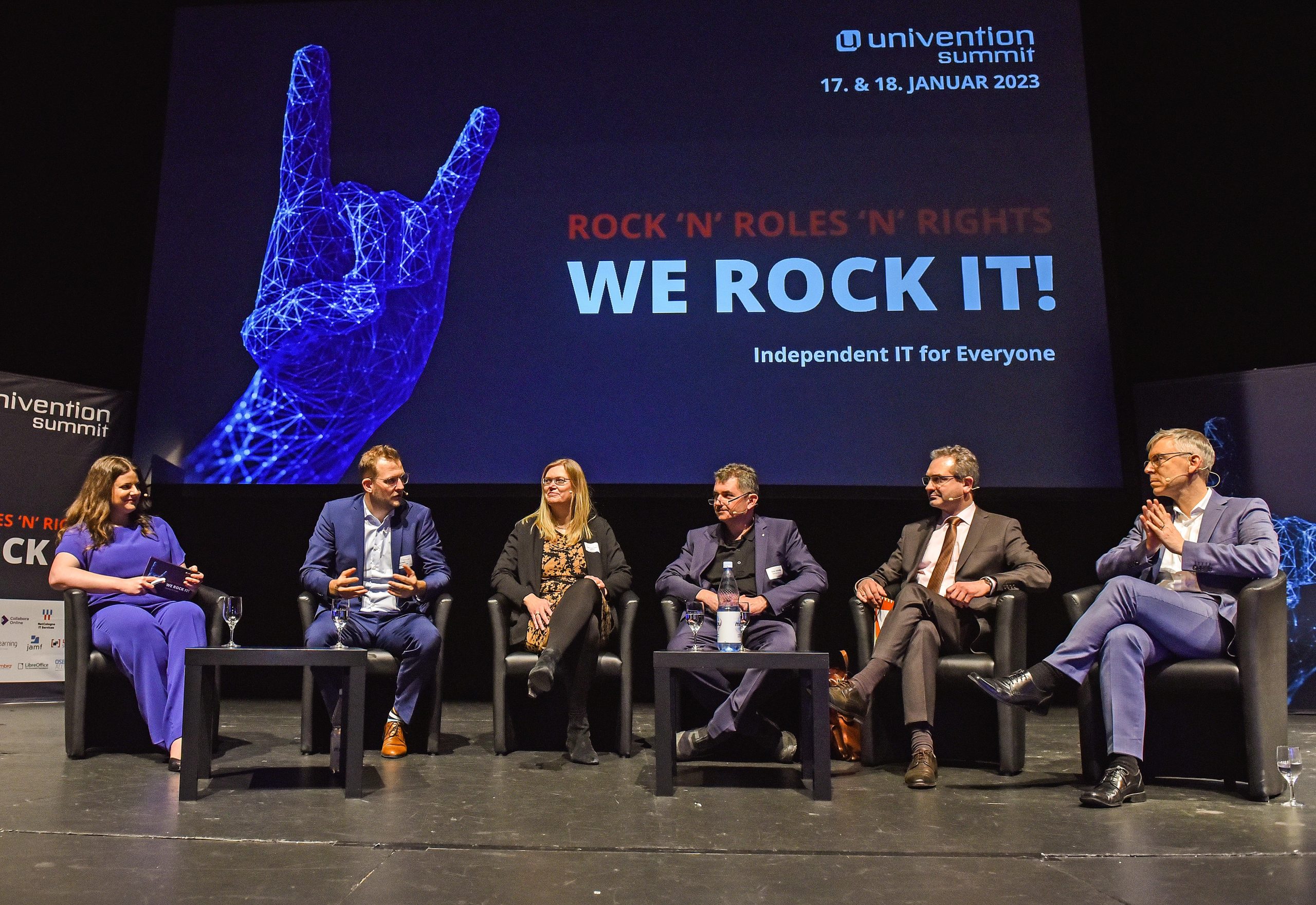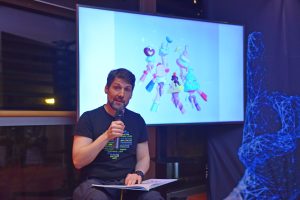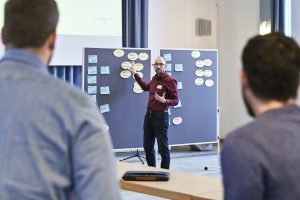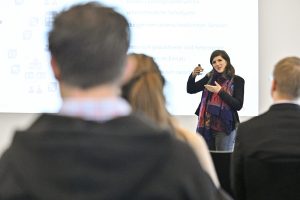More than 630 IT experts and decision makers from politics, administration, education and the software industry met last week at our Univention Summit 2023 to “rock IT”. The musically inspired motto “Rock’n’Roles’n’Rights – WE ROCK IT!” referred to our focus this year on the further development and expansion of the Univention roles and rights model, but also to the digital turnaround that we want to implement this year together with our partners and customers.
Table of Contents
Those were the Topics
Accordingly, the numerous presentations, workshops and discussions at the Summit repeatedly focused on IT trends, successful open source projects and the many possibilities offered by digitally sovereign IT infrastructures, such as the sovereign administration workstation and the dPhoenixSuite, which we are developing together with Dataport and a number of open source partners.
Both the presentations on January 17 at the Metropol Theater and the workshops and technology barcamp on the following day were very well attended, which was not least due to the exciting topics of our guest speakers and partners that were on the agenda. And, most importantly, the 31 partners who once again made the Summit the platform for networking and knowledge transfer for the topics of Open Software and Digital Sovereignty. Well-known IT providers and long-time partners of ours, such as agorum, ownCloud, Open-Xchange, Bechtle, Dataport, OpenTalk and Apple, aroused great interest among the attendees with their topics and encouraged personal exchanges of experience following the exciting workshops and presentations.
Sustainable Digitalization Rocks!
In his opening keynote, Peter Ganten (Founder and CEO of Univention) introduced the idea of an “Open New Deal” and explained the significance of a digital turnaround that must secure freedom, the ability to shape the digital world, and the provision of vital basic IT infrastructure. Particularly in a tense global political situation, in which politics and the globalized economy are increasingly driven by the interests of states, corporations, or even individuals, it is important to form an ecosystem of stakeholders that creates an IT infrastructure that is available and reliable for all, based on clearly defined rules.
Already during the industrialization 150 years ago, such a reliable infrastructure was the basis and engine for global prosperity and success. In contrast, Peter Ganten rejected protectionist approaches. Global challenges can only be solved together on the basis of openness, digital sovereignty and standards. An important component of an open and at the same time integrated IT infrastructure is central identity management, which enables secure access to a wide range of IT services and resources – a topic on which he and the entire Univention team have been working intensively for years and will continue to do so.
Unlike the current energy crisis, which was at least cushioned by gas storage facilities, this is not feasible in the case of cloud services. We cannot stockpile IT, it must be constantly produced anew, our CEO pointed out once again.
Our technology partners were also optimistic about the development of an open and integrated open source solution stack as an alternative to the closed platforms that dominate the market today, and presented various initiatives of their own:
- Andreas Gauger, CEO of our long-time partner Open-Xchange, presented the new META API “OSATRA” (“One Single API To Read (them) All”) in his keynote.
- Heinlein presented its open source video conferencing solution OpenTalk, a smart alternative to proprietary applications from U.S. vendors, and announced deeper integration with UCS at the Summit.
- At its booth, Dataport demonstrated the latest version of dPhoenixSuite, which is currently being piloted as an open source alternative to Microsoft365 for schools in Baden-Württemberg.
Positive Response to Presentations & Workshops on the 1st Summit Day
This year’s Summit program featured a wide variety of topics and speakers. In the Education Track, school boards presented their digitalization projects. For example, Oliver Bouwer and Meik Hansen, IT managers at the Senate of Education in Bremen, shared the challenges they have encountered with the digitalization of Bremen’s schools. Malte Matthiesen reported on the progress made in the central administration of school servers in the city of Flensburg, the district of Hameln-Pyrmont presented its concept for an IT infrastructure that integrates the city and the district, and the city of Lübeck presented the successful use of Open-Xchange as a unified mail solution for teachers and students.
In the parallel technology track, our colleagues from development gave a review and outlook on the technical development of UCS, highlighting the plans for the new UCS roles and rights concept, the integration of Keycloak and the measures we are taking to make our products fit for use in clouds based on Kubernetes. Another very interesting presentation was given by Matthias Waack from Schwäbisch Hall, a pioneer in the use of open source solutions in public administration, who made it very clear that the only sensible answer to the growing shortage of IT specialists must be the introduction of centrally manageable IT infrastructures.
Following in the afternoon was the Public Sector Track. Dr. Julia Pohle of the Social Science Research Center Berlin explored the myth of Internet fragmentation. The panelists tackled an equally important issue. Andreas Reckert-Lodde from the Center for Digital Sovereignty of the Federal Ministry of the Interior, Sirko Scheffler from DATABUND, Dr. Ralf Resch, Chairman of VITAKO, Silke Tessmann-Storch, new member of the Dataport Board of Directors, and our CEO Peter Ganten discussed the need for open and standardized interfaces to connect specialized processes to the new administrative cloud. All panelists agreed that the multi-cloud strategy envisioned by the German government can only become a reality if interfaces are mandated that allow all vendors to connect solutions. Otherwise, a quasi-standard based on proprietary platforms would lead to hidden vendor lock-in.
The presentation program concluded with a keynote by Matthias Spielkamp of AlgorithmWatch, who called for more transparency and traceability in the decision-making of AI systems, and the presentation of Infinite Scale, the new version of ownCloud, which is said to bring a revolutionary concept for a new data strategy.
The evening program continued with swing classics, evergreens, and pop culture from the Bremen-based swing band Trio Royal, and attendees took the opportunity to make new contacts and deepen old ones.
And Matthias Krischner took a playful look at the topic of independence in IT when he read from his book “Ada & Zangemann – A Fairy Tale about Software, Skateboards and Raspberry Ice Cream”, and it quickly became clear to the audience that inventor Zangemann should no longer be the only one who controls all the devices. It was a nice way to end a very eventful day.
Constructive exchange in workshops & at the Technology Barcamp on January 18
The 2nd day of the Summit was also a day of “rocking”. During the workshops at the Haus der Wissenschaft and the Technology Barcamp at the Konsul-Hackfeld-Haus, customers and partners met in small groups to exchange ideas, learn about new solutions and actively discuss with Univention software developers. The buzzword “Kubernetes” and the question of how UCS can run in Kubernetes in the future or even be a node of Kubernetes itself was of particular interest.
Docker Compose vs. Kubernetes on a single UCS was also discussed. Of course, we listened carefully to the concerns expressed by some attendees about increased product complexity due to Kubernetes and their desire for transparent communication and mature education through training and UCS documentation.
Univention Continues to Grow
The growth figures announced by our CEO Peter Ganten show how successfully we have developed. In contrast to many international IT companies, we at Univention have recorded an average revenue growth of more than 35 percent over the past three years. The number of users of the Univention platform has also grown by more than 30 percent, and we continue to grow at Univention because we are always looking for open source enthusiasts who want to break new ground together for sustainable digitalization.
To continue this growth, we are consistently expanding our Univention Corporate Server (UCS) platform and UCS@school, which is optimized for the education sector, to create an open platform for broad deployment and integrating other solutions. The focus here is on the migration to Keycloak as an identity service provider, the operation of cloud infrastructures based on Kubernetes and the expansion of the roles and rights model for differentiated access to resources and services.
Watch the full keynote, panel discussion and recordings of user presentations from the Technology, Public Sector and Education tracks on our YouTube channel (only available in german)
For more impressions of Univention Summit 2023, as well as information on speakers, partners and the complete agenda, please visit our Summit website.

